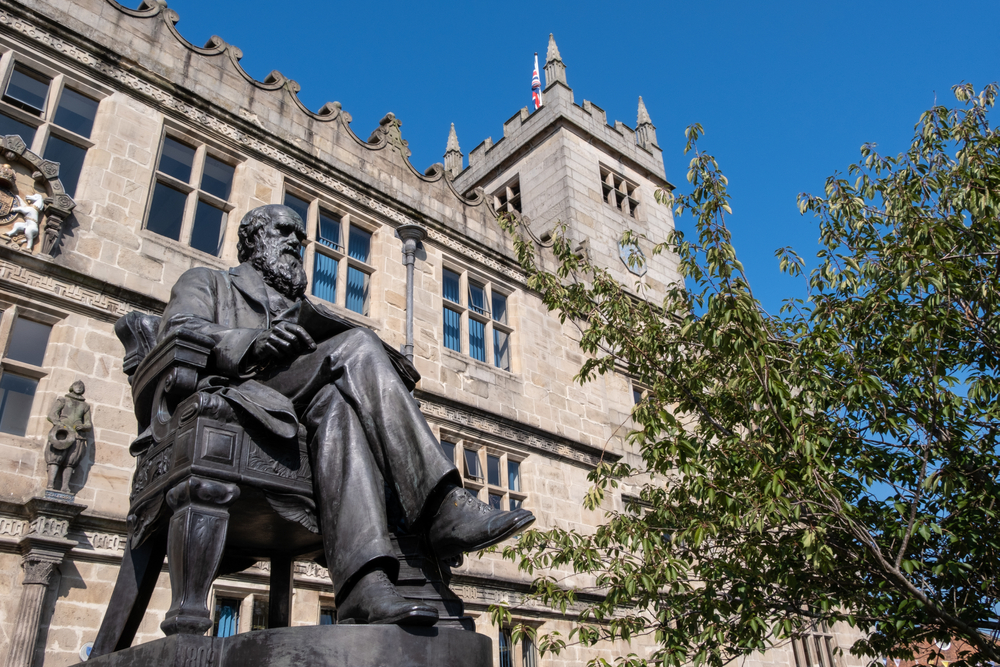I can find no better way to summarize David Berlinski’s book Science After Babel than to say that it is classic Berlinski. The man himself defies a simple summary. He is a polymath and raconteur, as even his bio at the accompanying website explains. His Ph.D. in philosophy is from Princeton, where he studied with the great logician Alonzo Church. But his many books on the history of math and science might lead one to expect him to be a mathematician or a scientist.
He was, as it happens, a postdoctoral fellow in mathematics and molecular biology at Columbia University. And over the years, he has taught both mathematics and philosophy in the U.S. and in France. But he is best known for his books and essays, which he has continued to produce as a senior fellow at the Discovery Institute from his apartment in Paris, where he has lived for many years.
I remember the first Berlinski essay I read. “The Deniable Darwin” appeared in Commentary in 1996, just as my own doubts about Darwinism had started to harden. The essay provoked a lengthy back and forth between Berlinski and leading Darwinians in a later issue of the magazine.
Berlinski is worth reading for both his insights and his prose, which manages to be both crisp and florid. Science After Babel is no exception. The book gathers his essays, notes, excerpts from previous books, letters to the editor, and the like written over the past few decades on the scientific enterprise.
Think of Science After Babel as a sampler platter of Berlinski’s thought and writing on science and math. Its purpose, I presume, is to leave you hungry for more.
In contrast to the current academic fashion in disciplines with “studies” in their name, Berlinski never treats science as just another power trip or language game. He knows and values the achievements of science, or rather of scientists. He especially admires math and mathematical physics but seems to return, again and again, to biology. So we get glimpses of the work of Newton, Einstein, Turing, Gödel, von Neumann, as well as Darwin, Crick, Kolmogorov, Chaitin, and Thom.
Despite his admiration, or perhaps because of it, Berlinski knows when scientists are bluffing.
As the book title suggests, he likens the great edifice of science to Bruegel’s famous painting of the biblical Tower of Babel. It is a great human achievement, still piercing the clouds. But because it is human, it smacks of hubris. “The Tower is still there,” he writes. “It is, in fact, larger than ever. But,” he continues,
it has neither reached the sky nor left the ground. It resembles Bruegel’s Tower of Babel far more than the Chrysler Building, and if it suggests anything at all, it suggests that its original plans have somehow been lost. Some parts of the Tower are sound and sturdy; but, my goodness, the balustrade devoted to the multiverse—what were they thinking?
Who knows? In looking at the Tower, if we are moved to admire its size, we are also bound to acknowledge its faults.
And what makes it sound and sturdy? Berlinski credits the “algorithm and the calculus” as “the two great ideas of the scientific revolution.” Indeed, he’s written books on each of these topics. Despite his fondness for such edifices, he’s quick to remind the reader how much reality these formalisms fail to capture. He can praise such abstract thought while retaining a commonsense wisdom that has no patience for naive reductionism. Noting the gestures of Plato and Aristotle (the one pointing up, the other down) in Raphael’s School of Athens, Berlinski manages to keep one eye on the empyrean above and the other on the solid ground below.
So why should you, dear reader of Religion & Liberty, bother with a book about neither religion nor liberty? Simple. Berlinski is second to none in deflating ideas that are a threat to both.
Nineteenth-century materialists denied not just the cogency of religious faith but the cogency of human agency. And materialism became a dominant faith for the first time in Western history not because of new arguments but because it enjoyed the prestige of science.
One of its most malevolent offspring in economics, namely Marxism, was the chief foe to friends of liberty for more than a century. And rather than dying a respectable death with the Soviet Union, even now it animates one of the world’s most populous countries and roams the halls of our own institutions as a mutant zombie in the form of critical theory.
Berlinski does not hold science blameless for these developments. Indeed, he credits the perversions of science for “a popular culture littered with ideological detritus: atheism, of course, or naturalism, or materialism, or physicalism, or scientism, or even, God help us, trans-humanism.”
In combating these -isms, he points to the fact that even the hardest and mathiest of the sciences, quantum physics, seems to focus less and less on anything we might plausibly call matter:
On current physical theories, that material base is occupied by various quantum fields, where, like so many electric eels, they occupy themselves in quivering with energy. Leptons and bosons emerge as field excitations, and so does everything else.
The great merit of materialism has always been its apparent sobriety. A world of matter? Look around! Bang the table, if necessary. Quantum fields do not encourage a look-around. There is no banging them beyond banging on about them. And for the most obvious of reasons. “Quantum field theory,” Lisa Randall writes, “the tool with which we study particles, is based upon eternal, omnipresent objects that can create and destroy those particles.”
This is an account that suggests the dominion of Vishnu as much as metaphysical materialism, a point not lost on Indian physicists.
If materialists were hoping for physics to ratify their faith, they must surely be disappointed.
Berlinski brings the same sharp rapier to another child of materialism, namely Darwinism—a subject that occupies the first third of the book. Yes, Darwin’s mechanism—natural selection acting on random variations—explains some things, and very well. It can adjust the size of Galapagos finch beaks to take advantage of droughts and wet spells. It can give rise to a bevy of bacteria that resist some or another antibiotic. We may presume it accounts for fluctuations in the color of Peppered Moth populations, depending on local conditions.
But its reach is limited. Darwin’s disciples hoped, and hope, for far more. They imagined this designer substitute would explain all the adaptive complexity of the biological world—the peering eye, the pumping heart, the tiny, flailing flagella of bacteria. Indeed, it’s supposed to explain the origin of species—and for that matter, the origin of body plans, and phyla, and kingdoms.
There’s never been any evidence that Darwin’s tool has such sweeping power, and there’s plenty of evidence against it. Berlinski has for decades been willing to speak bluntly about this fact. And he has refused to be intimidated, even as many religious intellectuals found clever ways to accommodate Darwinism.
Indeed, none of his objections is religious. His thought on this subject resembles the work of two formidable French skeptics of the Darwinian faith—both of whom Berlinski discusses in this book. Marcel “Marco” Schützenberger, a mathematician and a doctor of medicine, was Berlinski’s friend and sometime collaborator. René Thom was a towering 20th-century mathematician who won a Fields Medal in 1958—the highest honor for that profession. No honest person can read Berlinski’s treatment of Darwinian thought in these pages and dismiss it as religious prejudice.
Berlinski is at his best as an analyst and critic of complex and controversial ideas. When it comes to his own convictions on matters metaphysical, however, he tends toward the epigrammatic and cryptic. He is associated with the intelligent design movement, for instance. But his own position of the subject has always been agnostic.
My sense is that he suspects more than he’s willing to say. In the short conclusion, for instance, he observes that “life itself suggests a kind of intelligence evident nowhere else; reflective biologists have always known that in the end they would have to account for its fantastic and controlled complexity, its brilliant inventiveness and diversity, its sheer difference from anything else in this or any other world.”
Science After Babel is a foretaste of David Berlinski’s seminal work on science. I commend it as an appetizer, followed by The Advent of the Algorithm, The Deniable Darwin and Other Essays, and The Devil’s Delusion: Atheism and Its Scientific Pretensions. These, especially the latter two, will help inoculate you against the bad ideas that may enjoy the prestige of science but scarcely deserve it.

